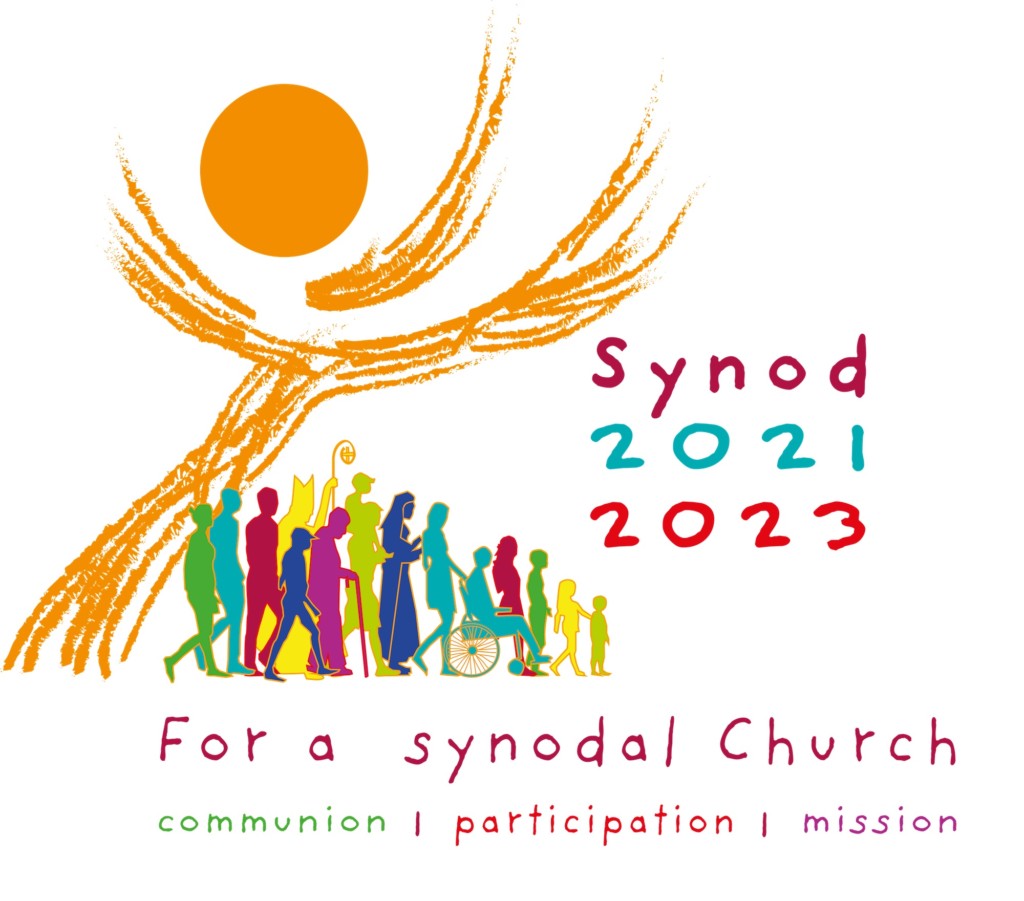Welcome
The diocesan phase of the synod has closed — thank you for participating!

Message from Bishop Olmsted
Message from Fr. John Nahrgang
You are Invited to Participate
The primary way of participating in the Synod was through group consultation and an online survey. The time to provide input has ended. Please check back here in the future for more information.
For more background information on the Synod, jump to:
Foundational Question and 10 Core Themes
Three Key Words: Communion, Participation, Mission
Pope Francis’ Homily on the Opening of the Synod
Read the Church’s Preparatory Document on the Synod (external link)
Fundamental Question and Ten Core Themes of the Synod
The Fundamental Question of the Synod:
A synodal Church, in announcing the Gospel, “journeys together.” How is this “journeying together” happening today in your local Church? What steps does the Spirit invite us to take in order to grow in our “journeying together”? (PD, 26)
In responding to this question, we are invited to:
- Recall our experiences: What experiences of our local Church does this question call to mind?
- Re-read these experiences in greater depth: What joys did they bring? What difficulties and obstacles have they encountered? What wounds did they reveal? What insights have they elicited?
- Gather the fruits to share: Where in these experiences does the voice of the Holy Spirit resound? What is the Spirit asking of us? What are the points to be confirmed, the prospects for change, the steps to be taken? Where do we register a consensus? What paths are opening up for our local Church?
Ten Core Themes
- “articulate different facets of ‘lived synodality’”
- “should be adapted to the different local contexts and, from time to time, integrated, explained, simplified, and deepened, with particular attention paid to those who have more difficulty in participating and responding”
- “can concretely inspire moments of prayer, formation, reflection and exchange.”
Communion, Participation and Mission
Explaining the Synod’s three key words – communion, participation, and mission – Pope Francis said that communion and mission describe the mystery of the Church. Communion expresses the very nature of the Church, according to the Second Vatican Council.
According to Saint Paul VI “communion, that is, cohesion and interior fullness, in grace, truth and collaboration… and mission, that is, apostolic commitment to the world of today”. Saint John Paul II stressed that koinonia gives rise to the Church’s mission of serving as a sign of the human family’s intimate union with God.
For this reason, Pope Francis said, Synods must be well prepared for, especially at the local level with the participation of all.

